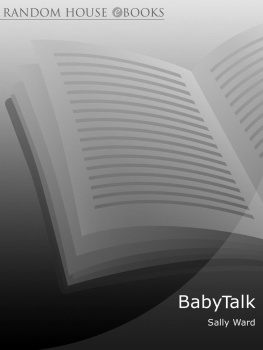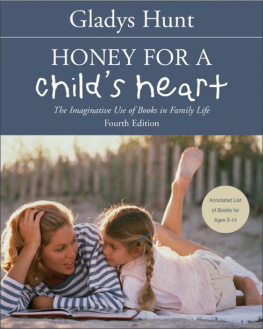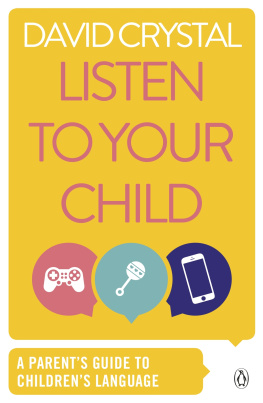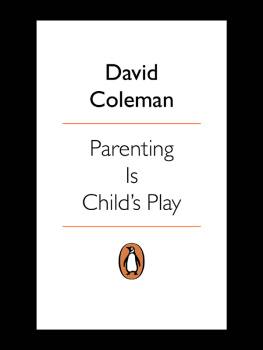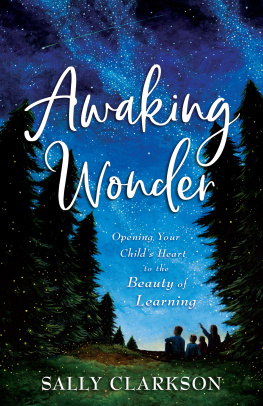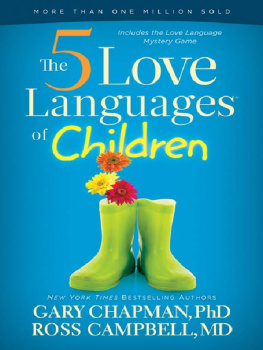Contents
About the Book
The ability to use language well is one of the greatest gifts you can give your children. Helping them to communicate, to listen, and to understand, will build the foundation of their future learning.
BabyTalk is a revolutionary programme from leading language therapist Dr Sally Ward.
The BabyTalk programme takes just half an hour of playtime a day, is simple, stress-free, easily followed by any parent, carer or childcare professional and above all, is great fun!
About the Author
Dr Sally Ward qualified as a speech and language therapist in London before marrying and moving to Manchester, where she had three children. From 1980 she worked at the Mancunian Community National Health Service Trust, and was appointed Chief Speech and Language Therapist with responsibility for children with language, hearing and learning difficulties. She was also appointed Advisor in Developmental Language Disability to the Royal College of Speech and Language Therapists. Following the completion of her PhD, she became the Trusts Principal Speech and Language Therapist. From there she went on to develop the BabyTalk Programme. Sadly, Sally died in 2002.
Acknowledgements
I should like to thank my literary agent Luigi Bonomi for having the idea for this book, and my editor Kate Parkin for her wonderful editorial skills. I am most grateful to both of them for their support and encouragement.
I am also aware of the wealth of knowledge I have acquired from many colleagues, in person and in reading their work. I am indebted to them all.
To my children Caroline, Tim and Jonathan who have taught me so much about language development.
Introduction
MY STORY
I have always loved words, and this, together with a very strong interest in language and in working directly with people, led me towards a career in Speech and Language Therapy. Speech and Language Therapists treat the full range of communication difficulties, from those experienced by adults who have had a stroke to those in babies affected by cleft palate. I qualified in London, and then married and went to Manchester. There I also qualified in the related area of audiology, which is concerned with the diagnosis and management of hearing and listening problems.
Soon after this, I had three children of my own, a daughter and two sons, who taught me a very great deal about language and communication development in the succeeding few years!
From 1980 I worked part-time in Manchester, in what is now the Mancunian Community National Health Service Trust, setting up a pre-school parent guidance service for hearing-impaired children, and also working in clinics with children who had a wide range of speech and language problems. I was subsequently appointed Chief Speech and Language Therapist with responsibility for children with language, hearing and learning difficulties, and taught courses on these specialist areas to Speech and Language Therapists and other professional groups . I was also invited to be Advisor in Developmental Language Disability to the Royal College of Speech and Language Therapists, and am consequently able to advise any member of the profession in this country who asks for my help.
I was then awarded a major three-year grant by the North West Regional Health Authority, and the resulting study established an accurate means of detecting infants at risk of language delay in the first year of life. This, together with a related study of the ways in which hearing impaired, learning disabled, deaf and autistic children respond to sound, resulted in the award of my PhD. Following this, I was appointed Principal Speech and Language Therapist, with responsibility for all speech and language impaired children within the Trust.
In the course of all my work, I had become particularly interested in listening and attention in young children, and in discovering more about the ways in which these relate to language development. I then had the wonderful opportunity of carrying out regular clinics for pre-school children with my colleague Deirdre Birkett, whom I had long respected as an exceptionally skilful Speech and Language Therapist. Deirdre and I learned an enormous amount from each other as we worked together, helping our young patients to talk and communicate. We developed an extremely effective programme, based entirely upon empowering parents to help their childrens development. We found to our delight that in every instance where the child had a language difficulty or delay, however severe, and it was not associated with deafness, autism, neurodevelopmental difficulties or general developmental delay, if parents were able and willing to spend just half an hour a day following our programme, the children made excellent progress. They often attained the ability to understand and use language normally expected for their age in a very few weeks or months. The joy on parents faces as their child begins to communicate remains one of the most rewarding aspects of my professional life. Not surprisingly, we both became and remained totally committed to using the programme as a method of intervention.
Many of the children we were treating in Manchester came from economically deprived backgrounds. Since then, I have had the opportunity of using the programme which we developed, now known as the BabyTalk Programme, with families from many different parts of Great Britain and across the whole social spectrum. The results have been consistently successful.
THE BABYTALK STUDY
Deirdre and I had developed our intervention programme to help children who were already experiencing language difficulties, but it occurred to us that it might be possible to prevent language disability from occurring in the first place, by adapting it for use with very young children. In the course of the screening study, in which Deirdre acted as research associate, we had visited the homes of 373 ten-month-old babies. Our first observation was that even at this very early stage, the infants were showing great differences, not only in pre-language skills, but also in their general developmental levels. The infants environments differed considerably, as did the amount and ways in which they were spoken to, and these factors appeared to relate strongly to their language development. By the time the screening study was completed, we felt that we could pinpoint those babies likely to develop language delay.
I was awarded a second major three-year grant by the North West Regional Health Authority in order to test out this idea. Using the screening test that had been developed, we discovered a group of 140 ten-month-old infants who were showing varying degrees of delay in language development, ranging from very mild to profound. These infants were divided into two groups, matched for language development, general development and social background. One group received the programme, and the other did not, acting as a control group. Over the next four months, Deirdre and I visited the BabyTalk group four times, discussing with parents a number of aspects of their lives, such as background sound and television, the amount the infants were talked to and the exact ways in which they were talked to. We then asked them to follow the BabyTalk Programme for half an hour a day.
We were very pleased to find that, just as we had seen with toddlers at our clinics, the BabyTalk infants made very rapid progress in their language development, and all who had completed the programme had caught up with their normally developing peers in under four months. Moreover, their parents told us how much they and the infants had enjoyed the programme, which delighted us!
Next page
